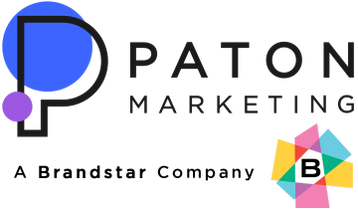POMPANO BEACH, FL – The ongoing challenge for small business owners and start-ups is to continually seek ways to improve profitability and avoid increasing expenses.
Thanks to a relatively new IRS code, small businesses can qualify for a tax credit for improving website accessibility and making accommodations for making these sites more useable for people with disabilities.
“This is an important issue and an evolution of the Americans With Disabilities Act,” said Todd Paton, president of Paton Marketing (www.patonmarketing.com) , a digital marketing and website development firm in Pompano Beach. “As business owners, we must all take the high road and provide equal access to websites for those with disabilities.”
Paton also pointed out that these inexpensive adaptations to websites can eliminate the chances for getting sued.
“In addition it being the right thing to do, these businesses will no longer be victims of expensive lawsuits resulting from predatory law firms seeking judgements,” added Paton. “This generous tax credit can also pay for these changes.”
Through the IRS Code Section 44, Disabled Access Credit, small businesses can qualify for a tax credit for increasing website accessibility and making other accommodations to make businesses more usable to persons with disabilities. The policy statement says: “Small businesses may take an annual tax credit for making their businesses accessible to persons with disabilities, should, in most cases, cover the efforts you make to comply with Section 508 of the Rehabilitation Act of 1973, as amended (29 U.S.C. § 794 (d)).
“Keep in mind that most businesses are behind the 8-ball because when the ADA was put in place in 1990 the authors of this legislation had never heard of websites and how they would impact our daily lives,” said Paton. “The Internet was in its infancy and no one – including the Federal government – could envision how e-commerce would evolve.
“With a few tweaks to a website businesses can avoid lawsuits and do what is best for those with disabilities.” While websites aren’t specifically addressed in the ADA, the accommodations are similar to other issues the law addresses.
“The ADA was responsible for a wide range of accessibility improvements,” said Paton. “Several include ramps improving access at public spaces to those in wheelchairs and braille symbols on elevators. The same issues are being applied to websites which should be able to provide services to those with hearing, seeing, and physical limitations.”
The following are among the guidelines that will make content accessible to a wider range of people with disabilities, including blindness and low vision, deafness and hearing loss, learning disabilities, cognitive limitations, limited movement, speech disabilities, photo-sensitivity and combinations of these.
- Websites should have darker words, outlines, and more contrast on letters for the visually impaired.
- There will be “zoom” pages or screen magnification software giving users the ability to make type larger.
- Voice over features telling people what is on the screen or helping with website navigation
- Head-tracking software that can move cursors
- Slow keys which adjust the sensitivity of the key board
- Dictation commands
- JAWS(Job Access With Speech) software that provides speech and braille output
- Captioning for hard of hearing
- “Descriptive audio captioning” so that visually impaired can hear what a speaker is wearing, what the background looks like, etc.
- Ability to re-size text and to increase contrast.
- Software that allows visually impaired to accurately “jump” to different sections. This is particularly important on job applications. There have been law suits claiming that an individual didn’t get a job because the website didn’t accommodate a disability.
To qualify, businesses must have annual revenues of less than $1 million or employ fewer than 30 full-time employees.
Businesses can claim the credit using the Disabled Access Credit on IRS Form 8826 .
About Paton Marketing
Paton Marketing is a digital marketing and website development firm, which recently merged with BrandStar, a content marketing firm. Based in Pompano Beach, the two organizations now combine efforts on a wide range of marketing initiatives for community associations, medical, retail, legal, financial services, hospitality, non-profits and many others. For more information, visit www.patonmarketing.com or call 786-454-9862.


Irist
Very informative and funny! For those curious to know more, check out: FIND OUT MORE. Let’s discuss!